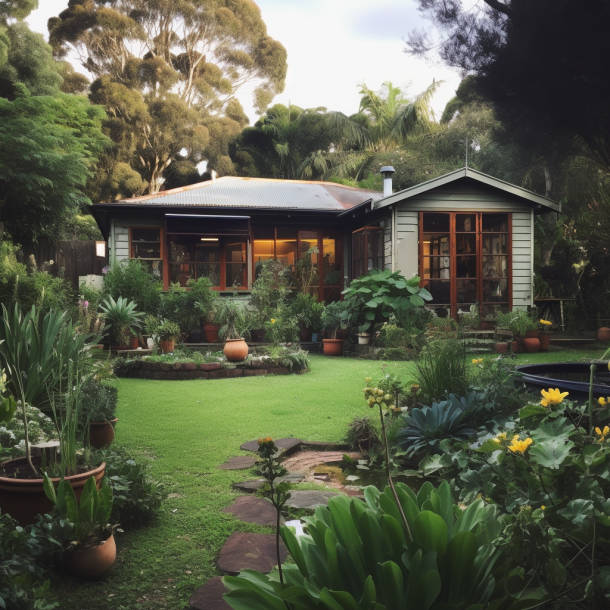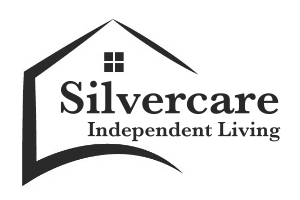Reverse Mortgages
Navigate NZ reverse mortgages with our in-depth guide. Discover the benefits, downsides and what you should consider when looking at reverse mortgages.
Many individuals enter retirement with fewer funds than anticipated, faced with a cost of living that surpasses their means. Despite dedicating years to their careers and almost clearing their mortgage, various circumstances have left their retirement savings lacking. With their superannuation only stretching so far, numerous retired New Zealanders find themselves consistently concerned about finances or unable to lead the lifestyle they envisioned.
The apparent solutions are either enduring the financial strain or considering selling their homes to downsize or relocate to a more economical area. However, after investing years in their work and homes this was not part of their plan. Most people want to stay in their own homes. One of the solution to this problem is a reverse mortgage. This is where you take a mortgage out against your own house and do not have to repay it until you either sell your house or you pass away. However, it is not without its downsides, so I encourage you to seek out a reputable financial adviser before getting a reverse mortgage. On this page we provide you information on how it work, its pros and cons, an example and a number of FAQ around reverse mortgages.

How Reverse Mortgage Work
Reverse mortgage is typically provided to those above 60, who own their own home equity but have limited liquid assets. A reverse mortgage offers a solution in that it enables homeowners to transform a portion of their home equity into usable cash, which they can allocate as they see fit.
No Regular Repayments; Growing Debt
A key distinction between traditional and reverse mortgages is the absence of mandatory regular repayments with reverse mortgages. Sounds great, however the downside is that interest accrues monthly, contributing to your growing debt. This interest further compounds, accelerating the loan’s growth over time.
Floating Interest Rates
Reverse mortgages operate on a variable interest rate, meaning it can fluctuate in line with the OCR. These rates tend to be higher than prevailing variable mortgage rates. The flexibility inherent in this rate means you can repay any part of the loan as you wish, without incurring early repayment fees.
Loan Settlement Upon Sale
The reverse mortgage is settled when your property is sold, which could be due to downsizing, transitioning to assisted living, or when you pass away. The sale proceeds are used to clear the outstanding loan, and any surplus is directed to you or your estate. Throughout this period, you retain legal ownership of your home.
Upkeep Obligations
To qualify for a reverse mortgage, homeowners must ensure their property is in good condition and adequately insured. Other obligations include timely council rate payments. As with all contracts, it’s prudent to familiarise oneself with all terms and conditions and seek professional advice.
Loan Amount Depends on Age
Your eligible loan amount with a reverse mortgage is influenced by the age of the youngest applicant. It’s calculated as a percentage of the home’s current market value. For instance, a 60-year-old might access up to 20% of their home’s value, while a 90-year-old could borrow up to 50%. This structure accounts for the compounding interest and ensures the lender can get what they are owned upon the property’s eventual sale.

Benefits of Reverse Mortgage
Home Retention: Through a reverse mortgage, you can tap into your home’s equity without having to sell or downsize. You remain in your cherished space while accessing the funds.
Benefit from Market Appreciation: Retaining home ownership means you capitalise on any surge in property values.
Zero Mandatory Payments: In contrast with traditional mortgages, reverse mortgages don’t require monthly payments. Interest simply accumulates on your loan.
Flexibility in Repayment: Repay a portion or the entirety of the loan at your convenience, free from early repayment penalties.
Use Funds Freely: The borrowed amount can be utilized for diverse purposes, from home repairs to medical bills. You can also request additional loans up to the agreed cap. (However, some lenders may stipulate conditions for certain uses like gifting or investments.)
Equity Protection: With the no negative equity guarantee offered by most lenders, you won’t owe more than your home’s selling price, regardless of market fluctuations or interest rate hikes.
Customisable Drawdowns: Borrow the sum you need all at once, in monthly installments, or retain a portion for future requirements in a credit line format.
Opt for Equity Preservation: Some lenders allow you to determine a minimum equity amount you wish to retain upon selling your home, providing additional reassurance.
Assurance against Negative Equity: Some providers ensure your debt never surpasses your property’s worth, so if the balance exceeds the home value, neither you nor your heirs are liable for the excess.

Potential Risks and Concerns
Primary Residence Requirement: These mortgages require that you reside in the property. Should you wish to rent it out for travelling, move into assisted care, or sell it, the loan will need to be settled by selling your property and paying off the balance.
Higher Interest Rates: Reverse mortgages often have interest rates higher than traditional mortgages. They are normally about 2 – 4 % above the normal rate. This places them in the relatively ‘high interest’ category.
Compounding Interest Impact: With the absence of regular payments and the monthly compounding of interest, a loan amount can grow exponentially over time. For instance, at a 10% annual interest rate, a $100,000 loan at 60 can soar to approximately $2 Million by the time you are 90 years old. That’s compound interest for you, it’s a little scary. The longer the loan persists, the more you or your heirs will be liable for, which may pose challenges if you need to vacate and finance residential care.
Lots of Fees: Reverse mortgages come with various charges. From upfront home evaluations, application processing, loan drawdowns, to mortgage terminations, fees can easily amount to over $2,500. Additionally, there may be other fees imposed depending on specific circumstances. It’s important to understand each of these.
Contractual Obligations: Borrowers are bound by the reverse mortgage agreement to maintain the property. This encompasses keeping up with insurance premiums, settling council rates, and ensuring the property remains in good condition, aligning with the lender’s criteria.
Property Eligibility: Certain properties might not qualify for a reverse mortgage. Lenders often exhibit hesitancy towards properties like lifestyle blocks, agricultural lands, homes previously afflicted by leaks, properties situated in retirement communities, and residences featuring problematic monolithic plaster cladding systems.

Alternatives to reverse mortgage
Downsizing: Sell your larger property and purchasing a smaller one. For instance, by trading a four-bedroom house priced at $900,000 for a two-bedroom at $700,000, you immediately gain $200,000. It’s advisable to downsize earlier, as the process becomes more daunting with age. By acting promptly, you have the luxury of time to secure optimal deals both in selling and buying.
Sell to Your Kids: An arrangement where you sell your property to your children can be beneficial. It provides you with an immediate lump sum or consistent monthly payments, gradually transferring ownership. It is vital to engage in such agreements with legal guidance to avoid potential pitfalls that may leave retirees vulnerable.
Rent Out a Section of Your Home: If relocating isn’t appealing, you might contemplate refurbishing a part of your home into an independent unit for rent. While there’s an initial investment, the strategy offers a steady rental income stream.
Sub-divide Your Land: If you’re sitting on a large property, splitting and selling a portion can be a worthwhile consideration. It will grant you some immediate funds, but you will have to pay for the subdivision and actually sell the block. So it is not without risk.
Consider building a small dwelling out the back of your property: Another option might be to build a granny type flat out the back of your property and either rent the main house out, or sell it to your children.
Frequently asked questions
Yes definitely. It is compounded monthly, meaning that each month you are charged interest on the original loan and all the interest that you have accumulated monthly. This means your loan can grow quickly, especially considering the interest rate tends to be at a higher rate than normal.
Yes normally, but depending on agreement you have with the provider. They may have fees around this, so it is important to know the ins and outs.
It can, or can be monthly top up payments. Note that you may get charged fees for each drawdown.
If you are older than 90 years old, few providers will give you a reverse mortgage.
Normally you or your partner need to be 60 years old.
Typically 100% equity is required.
When you pass away the house will be sold to pay off the mortgage. The remainder will be paid to your estate.
Not normally, but you should make sure you have the following in your contract. The reverse mortgage is in both you and your partners name, the contract allows ‘lifetime occupancy’, the contract prohibits ‘negative equity’ and that it has a ‘loan repayment guarantee’ in it.
It’s fully dependant on your actual circumstances. Go in eyes wide open and make sure you understand your future liability. They can be very expensive as the interest is compounding and higher than normal.
Some are excluded. It’s best to contact the providers to check on your house.
